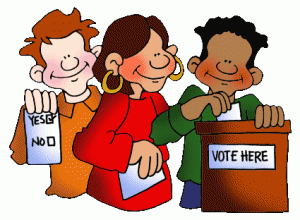 In 2016, 17 states will have new voting restrictions in place for the first time in a presidential election, ranging from new strict photo ID requirements and early voting cutbacks to voter registration restrictions.
In 2016, 17 states will have new voting restrictions in place for the first time in a presidential election, ranging from new strict photo ID requirements and early voting cutbacks to voter registration restrictions.
This came about as a result of the 2013 Supreme Court decision Shelby County v Holden, which found Section 4(b) of the 1965 Voting Rights Act unconstitutional. Section 5 of the Voting Rights Act required pre-clearance measures for 15 states with a history of discrimination against minority voters, which required federal approval of any voting rule changes in these states. Section 4(b) of the VRA specifically named the 15 states that were subject to the requirements of Section 5. The Supreme Court held that although the constraints made sense in the 1960s and 1970s, Section 4(b) imposes burdens that are no longer responsive to the current voting conditions in the 15 named states.
As a result of the Supreme Court’s decision, states can now pass controversial voting rights changes without federal government oversight. Of the 15 states named in Section 4(b) of the VRA, at least nine of these states have now enacted stricter voting rights laws saying these new restrictions are necessary to reduce the risk of voter fraud, (statistics show there is virtually no risk of voter fraud as only one in 5 million votes have been found to be fraudulently cast) or to save money.
Opponents to these new laws feel the tighter voting requirements are intentionally directed at minorities, voters of lower income and those living in rural areas. There are also longer voting lines, which leads to lower voter turnout. Of the 11 states with the highest African American voter turnout in 2008, seven states have new voter restrictions in place. Of the 12 states with the largest Hispanic population growth between 2000 and 2010, nine states passed laws making it harder to vote.
In 2015, Congress introduced the Voting Rights Advancement Act of 2015, which would once again require states with a history of voting discrimination to get advanced federal government approval for voting changes they propose to make. This bill is still pending.
